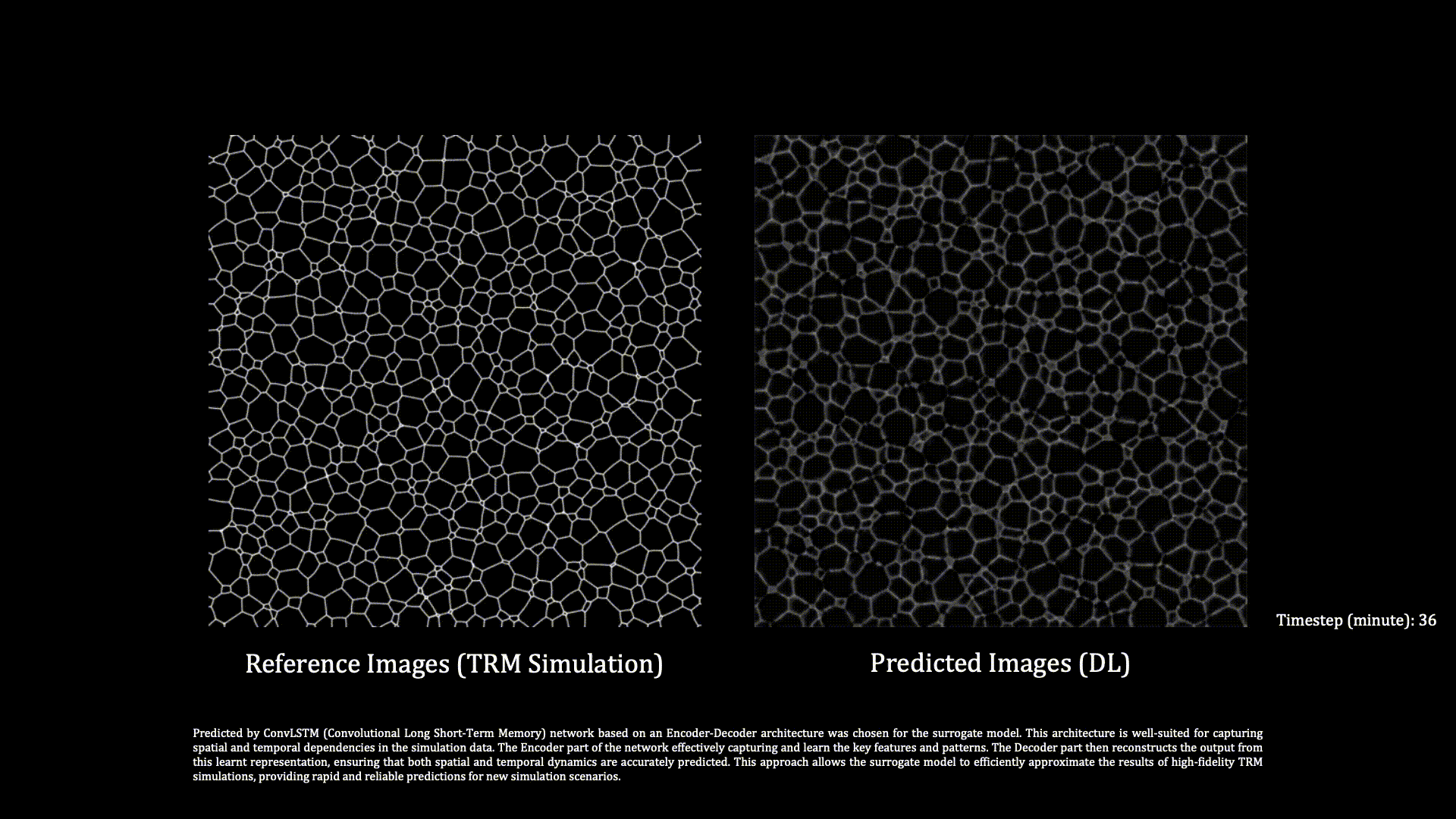Metallurgy, microStructure, Rheology – MSR
MSR team works on microstructure evolutions induced by thermomechanical processing of metallic materials.
The research mainly focusses on the :
- description of active physical mechanisms and their kinetics as a function of thermomechanical parameters at the mesoscopic scale,
- formulation of physical models describing plastic deformation, recrystallization, grain growth, phase transformations and their couplings,
- implementation of these models in predictive tools for the simulation of microstructural evolutions. This domain implies the development of new numerical methods (HPC in computational metallurgy and mechanics, meshing/remeshing tools, front-tracking and front-capturing description of polycrystalline materials) for high-fidelity simulations but also the development of multiscale modeling strategies and the development of surrogate models through machine learning strategies (e.g. in RealIMotion ANR industrial chair).
- The development of scientific calculation and simulation libraries: Cimlib, DIGIMU, Fitz (mesher/remesher), MPCP (crystalline plasticity), ToRealMotion (TRM), MDivide, DYNAMIX (mean field).
The originality of the developed approach lies in the combination of complementary skills and approaches : experimental physical metallurgy, mechanical metallurgy, modeling and numerical simulation to address complex cases close to industrial operations. In addition, fondamental research aiming to understand physical mehcanisms and to developp numerical tools to models them is assessed. These works are realized through close collaboration between experimental and numerical analyses.
The MSR team also manages and develops experimental plateforms : thermomechanical tests and heat treatment of metallic materials, metallography and electron microscopy.
Ongoing Thesis
- Miled CHALHOUB: Data-driven multiscale strategy for the prediction of void closure in material forming processes. MNM, Year 2024 + CSM team
- Walid DJEDAA: Characterization and modeling of the Bauschinger effect relaxation, recovery, and mechanical behavior of a martensitic steel. MNM, Year 2024 + S&P team
- Aleksandar DJONOVIC: Multiscale modeling of UO2 restructuring at low temperatures for heat generating SMR. MNM, Year 2024
- Eroshan GAMAGE: Development of numerical methods for the simulation the machining process of a part produced by additive manufacturing. MNM, Year 2024 + CSM team
- Sterley LABADY: AI-Driven Microstructure Generation from limited data. MNM, Year 2024
- Bowen LIU: Full-field modeling of solid-solid phase transformations, recrystallization and grain growth – Application to different alloys. MNM, Year 2024
- Rémy MARTINEZ: 3D multiscale modelling of damage mechanisms in recycled Aluminum alloys. MNM, Year 2024 + CSM team
- David PEREZ HURTADO: Bridging scales in Titanium alloys. MNM, Year 2024
- Natalia ROJAS LONDONO: Mean-field modeling of microstructure evolutions . MNM, Year 2024
- Lahcen ABARAY : Modélisation de la recristallisation dynamique continue (CDRX). Spécialité MNM, Promotion 2023
- Mekki GADDACHA : Propagation de fissures en 3D dans une interface CMO/CMO à l’échelle mésoscopique. Spécialité MNM, Promotion 2023
- Tianchi LI : Nouvelles perspectives dans la description de la mobilité réduite pour la modélisation de la croissance des grains et de la recristallisation à l’échelle polycristalline. Spécialité MathNum, Promotion 2023
- Fernando PASCUAL GOCE : Evolution de la microstructure au cours du forgeage de l’alliage VDM® 780 : modélisation de champ moyen de la recristallisation subsolvus et effet de la composition chimique sur la cinétique. Spécialité MNM, Promotion 2023
- Ladji Bafétégué OUATTARA : Circuit bio-sourcé imprimé par des nouvelles méthodes d’électro-impression. Spécialité MNM, Promotion 2023
- Corentin STRADY : Mécanismes et cinétique de croissance de grains dans un superalliage base nickel élaboré par métallurgie des poudres pour disques de turbines de nouvelle génération. Spécialité MNM, Promotion 2023
- Pungponghavoan TEP : IA et jumeau numérique en métallurgie – Modélisation de suivi de réseaux de joints de grains en évolution. Spécialité MathNum, Promotion 2023
- Eliane YOUNES : Intelligence Artificielle et jumeaux numériques en métallurgie – Modélisation de suivi frontal des réseaux d’interface en évolution. Spécialité MathNum, Promotion 2023 + équipe CFL
- Pauline HAHN : Evolutions métallurgiques des alliages Zr-Nb lors des procédés de déformation à chaud : compréhension des mécanismes et simulations. Spécialité MNM, Promotion 2022
- Théo HUYGHE : Impact du laminage circulaire sur la microstructure des disques de turbines de nouvelle génération. Spécialité MNM, Promotion 2022
- Antonio POTENCIANO CARPINTERO : Croissance de grains hétérogène dans le superalliage base fer 286. Spécialité MNM, Promotion 2021
- Adrien TALATIZI : Simulation de propagation d’ondes dans des milieux hautement hétérogènes. Spécialité MathNum, Promotion 2021
- Franco JAIME : Microstructure of nickel-based superalloys: Experimental analysis and 3D numerical simulation. Spécialité MNM, Promotion 2020





